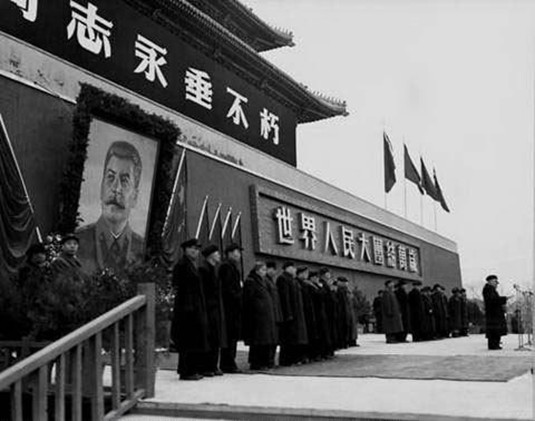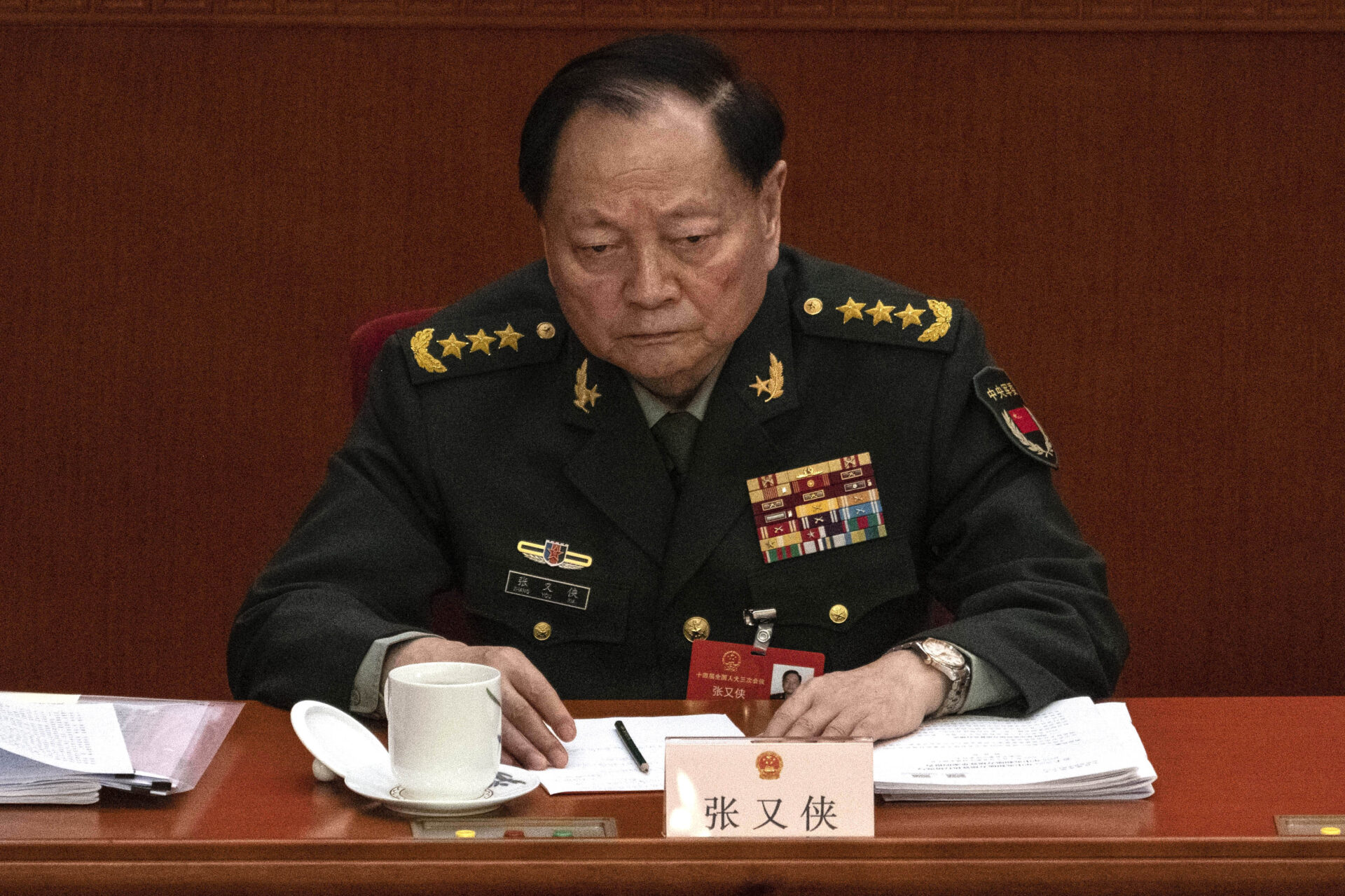The Impact Of 9/11 On Chinese Regional Security Cooperation
The Impact Of 9/11 On Chinese Regional Security Cooperation
Asia has been a focal point in the international campaign against terrorism ever since the tragic events of September 11, 2001. From the Caucasian mountains to the Java Sea, militant Islamists have made Asia the epicenter of the “war on terror.” Although the strategic consequences are still unfolding, there is no doubt that the protracted war against international terrorism is having a profound affect on the region’s political and economic situation, altering the interplay of interests and power in Asia. China plays a central role in the political and security dynamics in Asia, using its growing influence to shape the region’s strategic security environment. How China plays its cards in this environment will determine in large part the future course of efforts against terrorism in Asia.
Asian states are very much aware that international terrorism poses the greatest threat to the region’s political stability and economic growth. This threat has created an unusually strong regional consensus in support of anti-terrorism action on all levels – bilateral, regional and international – and muted many of the more strident strategic differences among the region’s major powers, particularly between the United States, China and Russia. Indeed, many of the traditional security concerns that have long hampered regional security cooperation have been set aside, shelved or even buried in the immediate aftermath of 9/11. China has been particularly forthcoming in the war on terrorism, giving significant support to the US-led military campaign against the Taliban and al-Qaeda in Afghanistan, sharing intelligence on and freezing assets of terrorist organizations.
Of course, China has its own domestic political reasons for joining in on the U.S.-led “war on terror” – the elimination of China’s main terrorist threat, the Xinjiang independence insurgency (Jiangdu). More importantly, China’s cooperation in the “war on terror” in Asia underscores a permanent shift in Chinese foreign policy towards multilateralism and a striking self-confidence of Chinese diplomacy. Since the events of 9/11, China has elevated anti-terrorism to the top of its national security agenda and made it the core aspect of its “new security concept” for the region.
For China, the war on terrorism represents an opportunity to build support for its “new security concept” and to strengthen its leadership role in Asia. Originally conceived as a means to limit U.S. influence in the region, China’s “new security concept” was to reshape the structure of regional security. Since the mid-1990s, China has progressively stepped up its involvement in regional security arrangements. China has deepened its engagement on regional cooperation and security dialogue with its Southeast Asian neighbors through the ASEAN Regional Forum (ARF) and the ASEAN +3 and ASEAN +1 processes. China has also been the driving force behind the establishment of Central Asia’s first regional collective security organization – the Shanghai Cooperation Organization (SCO) – that now includes China, Russia, Kazakhstan, Kyrgyzstan, Tajikistan and Uzbekistan. Beijing’s constructive engagement with its neighbors over the course of the 1990s has developed a substantial reservoir of goodwill and has allayed most fears of China’s growing assertiveness on regional and global security, especially international terrorism. The “judicious multilateralism” of Chinese post-Cold War foreign policy and diplomacy has enhanced China’s strategic position in the region and increased its influence over the region’s political and security dynamics.
From the outset, China has advocated a multilateral approach to the war on terrorism in Asia. Even before 9/11, Beijing recognized that international terrorism was an emerging threat to regional stability, and that international cooperation was required to combat the “three evil forces” of terrorism, separatism and extremism. This realization provided one of the driving forces behind the development of the SCO and China’s steadfast commitment to build the capacity and capability of the SCO in the field of counter-terrorism. Obviously, China’s influence in the war on terrorism is much greater, and its strategic security concerns are heeded more, within a multilateral context. But China’s anti-terrorism strategy has only partly succeeded. Regional security cooperation has improved, though the SCO and ARF have not necessarily been strengthened. And China has been unable to move the United States towards multilateral security arrangements for fighting terrorism in Asia.
Now that the U.S. and its allies are bogged down in Iraq and the U.S. military dangerously overstretched, China’s cooperation in the fight against terrorism in Asia is more important than ever. With the U.S. unlikely to be able to respond to new terrorist threats in Asia any time soon, Asian governments must develop alternative, less America-dependent anti-terrorism strategies, creating an opportunity for China to take the lead in the fight against terrorism in Asia as well as in strengthening regional security cooperation.
However, there are a few challenges ahead that may impede a more explicit leadership role for China. First, and foremost, is the unsteady U.S.-China relationship. The Chinese consider their relationship with the U.S. to be of paramount importance and have sought to minimize differences with Washington whenever and wherever possible. But, the strategic convergence on anti-terrorism between the United States and China that materialized in the aftermath of the September 11 attacks has all but dissipated in the wake of the Iraq war. Beijing is increasingly concerned about the occupation of Iraq, the large U.S. military presence in Central Asia, the overseas deployment of Japanese Self Defense Forces, and the political turmoil in Taiwan and South Korea. All of which increase the contentiousness of Sino-American relations and pose an immense challenge to China’s strategic interests and its “new security concept” for Asia. So far, China has responded to these developments with considerable restraint and prudence, demonstrating a more sophisticated and mature strategic outlook on the part of Beijing. Nevertheless, Beijing is finding it increasingly difficult to work with the Bush administration, which seems determined to think of China as a strategic rival. Nor will overcoming Washington’s reluctance to work with China as a “strategic partner” in the war on terrorism be easy.
Second is defusing the North Korean nuclear crisis. China boldly intervened in the strategic morass of the Korean peninsula almost immediately after North Korea revealed that it had re-started its nuclear weapons program in 2002. Although China has devoted enormous diplomatic and political resources over the last 18 months to keep the crisis from escalating into a military confrontation, the primary antagonists – Washington and Pyongyang – remain intransigent and resist compromise. The crisis has become an important test of Chinese diplomatic skills and influence, with significant risks to China’s image and leadership “credentials” in Asia if the six-party talks totally collapse. It is imperative that this crisis be settled quickly and peacefully in order for China to concentrate more of its energies on anti-terrorism.
Another challenge is reducing tensions with Taiwan. The Taiwan issue has long been the greatest security challenge for China and the most sensitive matter in Chinese foreign policy. China was initially concerned that Taiwan “separatist forces” would try to use the war on terrorism to facilitate independence from the mainland. With Beijing’s attention largely on its western frontier with the war in Afghanistan and counter-terrorism efforts in Central Asia, Taiwan could easily take advantage of the situation in the belief that the mainland was too distracted to counter a move towards independence. There was also some concern that Taiwan would use anti-terrorism as a pretext for purchasing additional weapons from the United States and to lobby the Bush administration for a role distinct from that of the mainland in the U.S.-led anti-terrorism coalition. While the Taiwan authorities have avoided any overt steps in this direction since the launch of the war on terrorism, episodic tensions characteristic of cross-strait relations did emerge nonetheless, reaching a peak in the run-up to Taiwan’s recent presidential elections. Were China to mishandle the Taiwan issue, the ramifications for regional stability and security would be severe and would devastate the mainland’s standing within the international community.
It remains to be seen if China can manage these opportunities and challenges. Beijing is acutely aware of how much is at stake and that the price of failure will be high. So far, China has been an astute player in Asia’s turbulent strategic security environment, wielding its power judiciously. But the real test of China’s leadership of the war on terrorism in Asia is whether China can shoulder the enormous burdens of power that lie ahead. The future stability and security of Asia depends on China passing this test.


